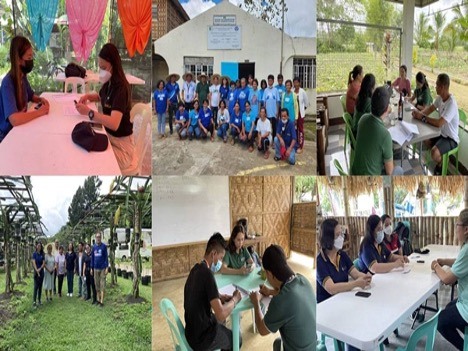
BY LEANDER C. DOMINGO
LOS BAÑOS, Laguna (December 1)—To come up with a basis for policy recommendations and development of possible innovations toward the improvement of the Program on Accelerating Farm School Establishments (Pafse), an intergovernment-treaty organization was tapped to conduct an assessment of farm schools across the country.
According to Southeast Asian Regional Center for Graduate Study and Research in Agriculture (Searca) Director Glenn Gregorio, the center has conducted a series of key informant interviews in selected farm schools to document and assess the current status of Pafse implementation and operation.
The goal of the Pafse program of the Technical Education and Skills Development Authority (Tesda) is to encourage the establishment of farm field schools to increase farm productivity and train farmers to become agro-entrepreneurs through the provision of scholarships.
Gregorio said Searca has visited farm school sites in Region 4-A (Calabarzon), Region 5 (Bicol), Region 7 (Central Visayas), Region 8 (Eastern Visayas), Region 10 (Northern Mindanao) and Region 13 (Caraga).
A team visited a total of 25 farm schools across the country were visited including two Tesda-administered schools and three provincial training centers to collate information on their implementation structure in comparison with the established privately owned and managed farm schools, he added.
Tesda regional and provincial directors, focal persons, and staff were also interviewed to understand how the agency executes such a program from the program registration to the allocation of scholarship slots, accreditation, certification and the tracking of the scholars’ employment.
“In partnership with Tesda, we have conducted this study in line with Searca’s goal of achieving the desired outputs and outcomes of the Center’s 11th Five-Year Plan or FYP with the theme, ‘Accelerating Transformation Through Agricultural Innovation’ or Attain,” Gregorio said.
He said the center is now working on the data analysis and drafting of the evaluation report, which will serve as the basis for policy recommendations and development of possible innovations toward the improvement of Pafse.
He added that the result of the study is slated to be presented in the second week of December 2022 to the Tesda Technical Working Group.
During Searca’s site visits for the assessment from October 2 to 27, the team used a case study approach where challenges and barriers in terms of program implementation and processes were identified to draw lessons learned and recommendations to enhance and scale up Pafse in the Philippines.
Gregorio noted that the interviews specifically focused on the farm school’s origin and establishment; the conduct of training, problems and prospects; and recommendations on how the program can be improved for the farm managers and farmer-beneficiaries.
He said the study included the identification of management practices of the farm schools about the scholarship support from Tesda as well as management of funds and the conduct of trainings in their respective farm schools.
According to Gregorio, what was noted was that each agriculture-related training program receives different training cost support from Tesda, hence, farm managers were employing different approaches in managing allocated Tesda funds, ensuring farm beneficiaries finish the competencies or certifications they enrolled in.
Searca said the activity was spearheaded by Searca’s Emerging Innovation for Growth Department or EIGD with Asst. Prof. Paul Joseph Ramirez, project leader; Dr. Rodmyr Datoon, assistant project leader; and Imelda Batangantang and Ma. Christina Corales, program specialists; Darlyn Angeles, project coordinator; Stella Faye Estrella, project associate; and Jerrel Edric Mallari and Ronald Salazar, project assistants.
